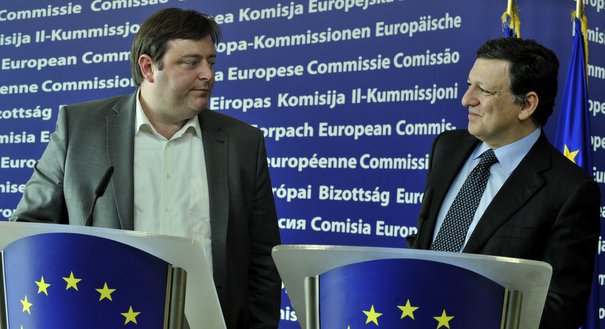During my years as a secondary school pupil in Dublin, I vividly recall the raging arguments among my classmates about Europe.
We weren't part of the EC, as it was called, then. But how I longed for Ireland to join the community in some way!
My pro-European classmates believed that joining the EU would make Ireland independent. Of course the Republic was a state in its own right. But we were completely dependent on England for trade, jobs, and emigration. We had the same currency and could even vote in British elections! In short, we were dependent on England for our future.
It wasn’t that we were anti-England. It was that we really believed Europe would propel Ireland towards modernity. I am not saying that now with the benefit of hindsight. We believed it would make a conservative Ireland, which was dominated by the Catholic Church, more secular, more liberal, and more open. Europe would give us an access to the world.
The anti-European classmates were fiercely nationalist. They said our Irish identity would be smothered. We would not be in control of our own destinies. The EU was foreign and interfering.
To this day I am happy that the nationalists lost out. Joining the EC gave Ireland’s younger generation fantastic opportunities, the farmers huge subsidies, and the infrastructure an unimaginable and long overdue overhaul.
We were no longer mocked by the English for our accents or patronized because of our poverty. We finally had our own voice and status in Brussels, and we still love that. It has given the Irish, despite the shameful ‘No’ to the Nice referendum, a real sense of confidence, belonging, and independence.
And to disprove the fears of the anti-European lobby, the Irish language is going through a huge revival. Europe has strengthened, not weakened, the Irish identity.
I brought the case of Ireland up because independence is now an intense issue in Scotland, Catalonia, and Flanders.
The Scots will hold a referendum on independence in 2014 with the consent of David Cameron, Britain’s prime minister.
The Catalans would dearly love to do the same, but Mariano Rajoy, Spain’s prime minister, insists they respect the constitution that does not allow any referendum on independence.
And Bart de Wever, leader of the New Flemish Alliance that won 37.7 percent of the vote in last week’s Belgian election, says he wants to turn Belgium into a confederation—and here I was thinking that it was already decentralized to the point of ungovernability.
Understandably, with these three cases, national governments realize the consequences. It is as if part of the body politic is being pulled inexorably apart.
In practical terms, these independence aspirations lead to very difficult disputes over the disbursement of financial revenues and possible compensations for past investments.
Leaving aside the deep emotional and historical impact of such separation, what would really change on the ground? Not that much, if the new states were to seek membership in the EU and if the EU was to accept them.
The European Commission, the EU executive, would continue to set the agenda on trade and competition issues that dominate the economy. The same is true for many other competences that the EU now exercises. Scotland, Catalonia, and Flanders, would still be eligible to some of the EU’s structural and cohesion funds.
For Europe as a whole, however, two things would change. The first is that smaller countries would have even more weight. That in turn would strengthen the EU’s communautaire, or community policy. Small countries tend to veer towards it because it shields them against the power of the bigger countries.
Second, the Scottish, Catalan, and Flanders movements could spark off even more separatist movements in other EU countries. Italy’s Northern League, for instance, might ponder such a move once it realizes that under the umbrella of the EU, separatism can be had relatively cheaply.
It is EU membership that makes it possible for small countries to choose their own way without running the risk of having to face bigger countries alone over foreign policy or trade disputes.
That is the paradox of European unification. It is making it possible for the peaceful fragmentation of national states. What a strange twist in the bloc’s post-war history.






